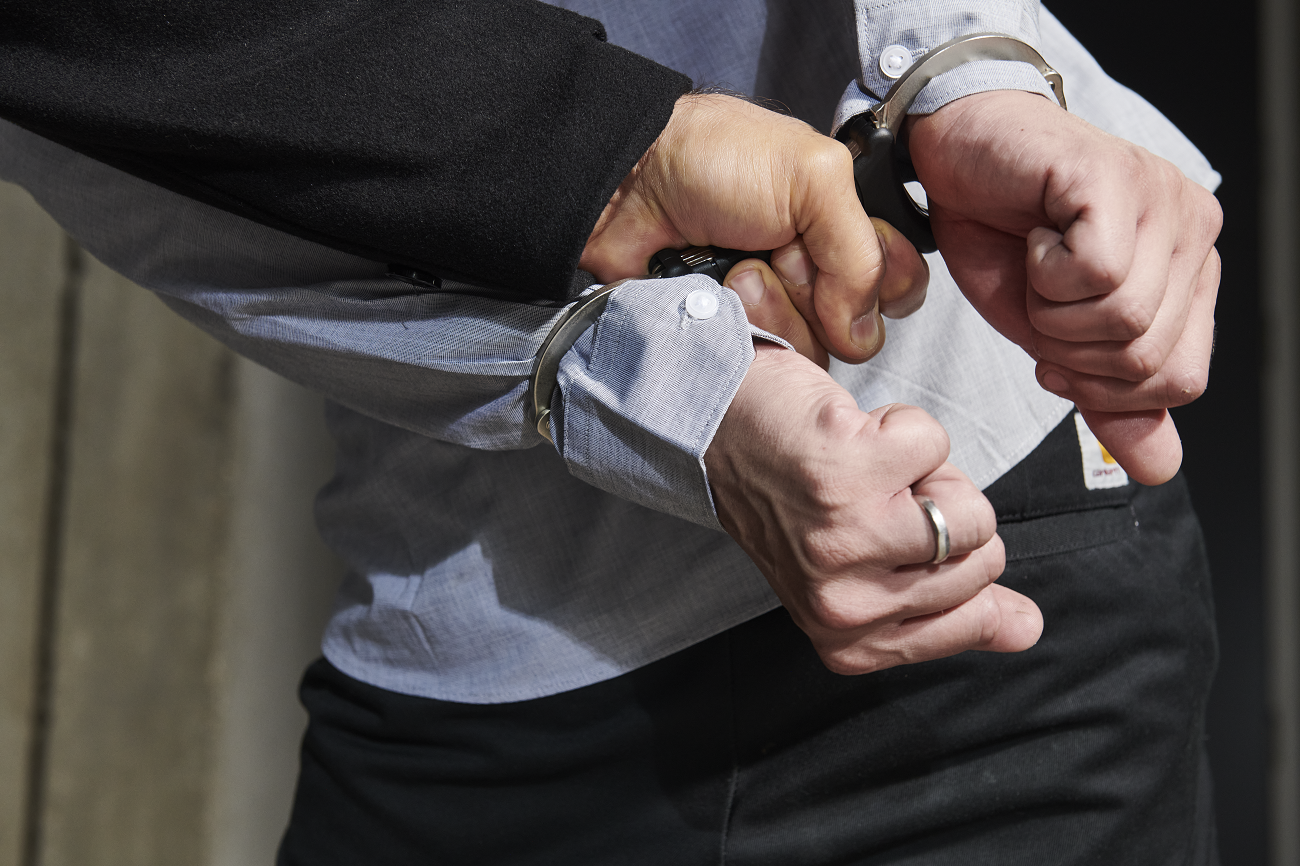
Can Security Personnel Use Handcuffs?
Use of Handcuffs
You may be wondering if you have seen security guards and door personnel with handcuffs, what working in the security industry allows you to do. And if you can arrest and detain people using handcuffs.
Well, the simple answer is there is no legislation in the United Kingdom that stops citizens from having handcuffs. And SIA-licensed security officers have no special powers over ordinary people. Anybody who carries handcuffs must be aware that using them may be a crime unless they can demonstrate that their usage was fair and reasonable in the situation.
Many security guards have handcuffs, and they are crucial pieces of equipment, especially if a person refuses to cooperate. To reduce the risk of injury, SIA security guards are taught to use handcuffs correctly.
When Can Security Enforcers Use Handcuffs?
Operatives can use handcuffs to control and limit the mobility of people who demonstrate severe aggression and greater risk. And also as a last alternative for individuals who fails to cooperate with the conflict management tactics that security officials may use before calling the police. In fact, handcuffing is seen as a preferred technique of restriction by security personnel, contrary to group restraint measures, which might endanger the individual being controlled.
For instance, to hold a suspected shoplifter, security officials have the authority to use “reasonable” force. Security personnel are allowed to ‘use as much force as is proportionate in the context of prevention and detection of crime, or in achieving or helping in the lawful arrest of criminals or suspected criminals, or of people unlawfully at large.’
In addition to self-defence, officers may use force if they think they are in danger.
It is crucial to remember that using handcuffs is not unlawful, nor is the arrest action limited to security and police personnel. In actuality, the ability to arrest is granted to all public members and is also referred to as the citizen’s arrest. According to the Criminal Law Act of 1967, anybody may use moderate force to prevent wrongdoing, aid in the apprehension of a perpetrator, or avert immediate danger.
What to Note when Using Handcuffs
While this implies that door supervisors can make arrests, operatives must consider a few restrictions before actually executing this law. As much as the use of force is the last choice in dispute resolution, SIA training emphasises that force must be justified when used, but only to the extent designed to stop additional crises.
However, using select kinds of handcuffs may result in liability difficulties for the security personnel. Unlike chain cuffs, rigid and hinged cuffs may be applied one-handed to perform pain-compliance/control tactics. If the suspect is not found to be guilty, the officer might face a civil or criminal claim for misusing the handcuffs.
As previously stated, trained manned guarding personnel prepare such scenarios to respond appropriately. Every situation is based on the person’s capacity to make sound judgment, so SIA training is essential. You can get that training when you book a course, so you will know when you can use handcuffs and when you might be overstepping the mark. It will often be up to your employer whether you should carry handcuffs. You’ll also learn a whole lot more, including first aid training and conflict management. Why not take advantage of our summer sale discount and take a course with a £60 discount.
Latest content- An interview with Julius Francis
Looking for jobs?
To find the latest security jobs, check out our Jobs Board, which has 1,000+ jobs from the UK’s best security companies.
If you’re on the hunt for a security job on the go, download the GuardPass app for all the latest jobs and more. The GuardPass App is available for download on the Apple App Store or on the Google Play Store.
The UK’s number 1 course finder
Best price guarantee
We offer price match if you find the same course cheaper elsewhere
100% money back guarantee
Get a full refund if you don’t like the course. Terms apply.
5-star customer support
Consistently rated 5-stars on review sites like Trustpilot
£0 booking fee
We never charge any booking or hidden fees
Instant eLearning access
Get FREE access to eLearning course materials instantly after you book
Top-rated training providers
Over 90% of our customers pass the exam in the first attempt

 Trustpilot
Trustpilot












